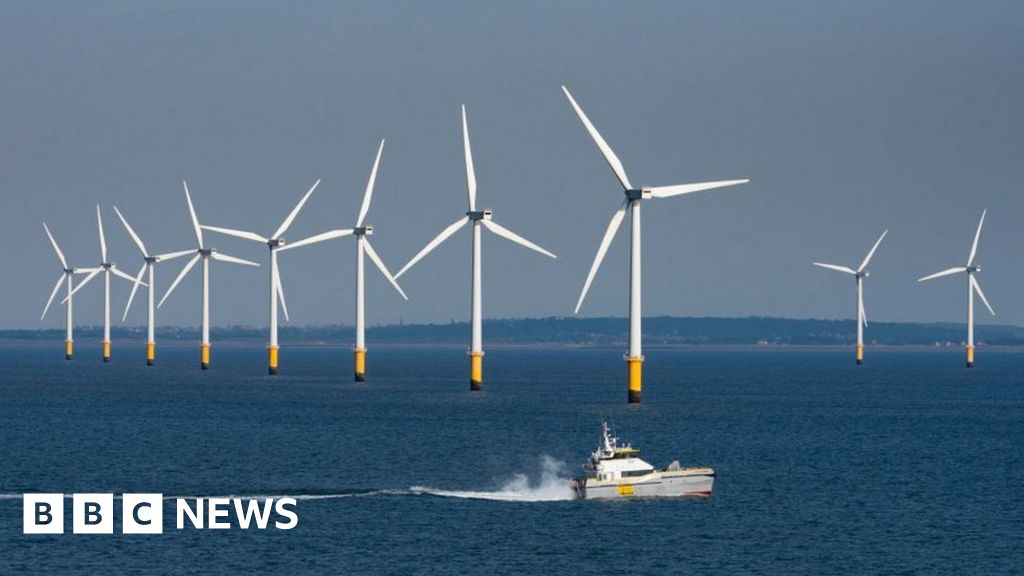The price paid to generate electricity by offshore wind farms is set to rise by more than 50% as the government tries to entice energy firms to invest.
Its comes after an auction for offshore wind projects failed to attract any bids, with firms arguing the price set for electricity generated was too low.
The BBC understands the government now will raise the price it pays from £44 per MWh to as much as £70.
The BBC understands the government now will raise the price it pays from £44 per MWh to as much as £70.
Energy companies have told the BBC that electricity produced out at sea would remain cheaper and less prone to shock increases compared to power derived from gas-fired power stations.
The UK is a world leader in offshore wind and is home to the world’s four largest farms, supporting tens of thousands of jobs, which provided 13.8% of the UK’s electricity generation last year, according to government statistics.
But when the government revealed in September that no companies bid for project contracts, plans to nearly quadruple offshore wind capacity from 13 gigawatts GW to 50 by 2030 – enough to power every home in the UK – were dealt a heavy blow.
The technology has been described as the “jewel in the UK’s renewable energy crown”, but firms have been hit by higher costs for building offshore farms, with materials such as steel and labour being more expensive.
According to energy companies, the government’s failure to recognise the impact of higher costs led some firms to abandon existing projects, and all operators to boycott the most recent auction.
The price paid to generate electricity by offshore wind farms is set to rise by more than 50% as the government tries to entice energy firms to invest.
The BBC understands the government now will raise the price it pays from £44 per MWh to as much as £70.
Its comes after an auction for offshore wind projects failed to attract any bids, with firms arguing the price set for electricity generated was too low.
Energy companies have told the BBC that electricity produced out at sea would remain cheaper and less prone to shock increases compared to power derived from gas-fired power stations.
The BBC understands the government now will raise the price it pays from £44 per MWh to as much as £70.
The BBC understands the government now will raise the price it pays from £44 per MWh to as much as £70.
Energy companies have told the BBC that electricity produced out at sea would remain cheaper and less prone to shock increases compared to power derived from gas-fired power stations.
The UK is a world leader in offshore wind and is home to the world’s four largest farms, supporting tens of thousands of jobs, which provided 13.8% of the UK’s electricity generation last year, according to government statistics.
But when the government revealed in September that no companies bid for project contracts, plans to nearly quadruple offshore wind capacity from 13 gigawatts GW to 50 by 2030 – enough to power every home in the UK – were dealt a heavy blow.
The technology has been described as the “jewel in the UK’s renewable energy crown”, but firms have been hit by higher costs for building offshore farms, with materials such as steel and labour being more expensive.
According to energy companies, the government’s failure to recognise the impact of higher costs led some firms to abandon existing projects, and all operators to boycott the most recent auction.
#Prices #generate #offshore #power #rise
Note:- (Not all news on the site expresses the point of view of the site, but we transmit this news automatically and translate it through programmatic technology on the site and not from a human editor. The content is auto-generated from a syndicated feed.))



